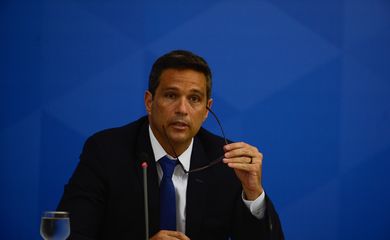Economy Minister: Inflation to be main problem in 2022

The resilience of inflation will be the big problem facing the Brazilian economy in 2022, said Economy Minister Paulo Guedes.

However, he went on, low growth estimates by analysts for the country’s gross domestic product (GDP) in the coming year—between zero and one percent—may not materialize.
“The problem will not be low growth, the problem will be resilient inflation. Inflation will probably be a little higher than you’re predicting, but growth will also be higher than you’re predicting, so let’s see. I don’t make predictions, I make fun of predictions, of wrong predictions,” he declared in English while participating in an online even promoted by a Brazilian bank.
In the latest issue of the Focus market readout, a weekly survey by the Central Bank with financial institutions, market analysts estimate a 0.9 percent growth for the 2022 GDP and an official inflation of 4.8 percent a year.
No interference
The minister said that the economic staff does not plan to use regulations to interfere in prices. The only policy in progress to curb inflation, he said, is monetary constriction (increase in interest), conducted by the Central Bank.
“It is true that interest will increase with the Central Bank’s struggle to curb inflation, but we’re really undergoing the transition for sustainable growth across all sectors,” he said.
In cases in which inflation speeds up due to external shocks, the minister advocated for transparency in revenues through Brazil Allowance to mitigate the impact on poorer families. At the same time, hikes in oil and energy prices, Guedes argued, should draw foreign investment to Brazil.
“If the prices of petroleum and energy rise, it’s part of the solution, as it attracts investment. The best solution is to let the market act, and if there’s any malfunction, it can be settled with income transfer,” Guedes said.
The minister noted that the recent trip of President Jair Bolsonaro and a number of ministers to the United Arab Emirates led to committed investments of $10 billion in ten years, bolstering the estimated injection of $700 billion in foreign investment in the country for the coming decades.




